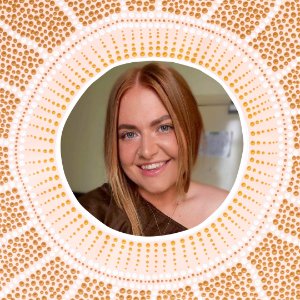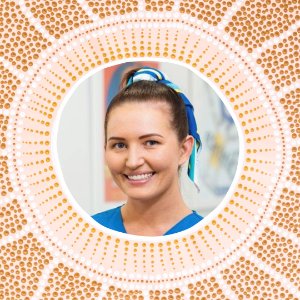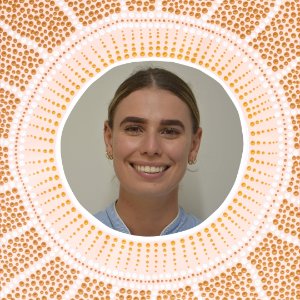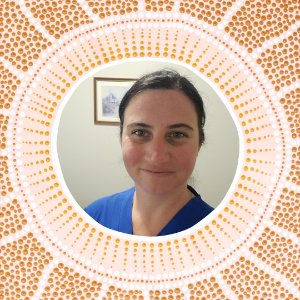Meet the recipients of the ADHF's 2023 First Nations Grants


The Australian Dental Health Foundation is proud to announce this year’s recipients of its First Nations Study Grants which were first offered in 2013, and which are available to students of Aboriginal or Torres Strait Islander background who are undertaking a course of study that will lead to registration as a dental hygienist or oral health therapist.
The grants offer students funding that may be used to cover costs of dental equipment, textbooks and to financially support students while they are on placements or living away from home.
The awarding of the grants has enabled many past students to realise their career goals including past multiple recipient Taneecia Walker who is now working full-time as an oral health therapist at the Aboriginal and Torres Strait Islander Community Health Service in Brisbane. Taneecia speaks highly of the way the funding helped her to undertake her studies and to progress to her current position.
“I was sent the grant application by one of my friends,” she says. “After reading about it, I knew I would be eligible and wanted to apply for it. The grant helped me financially throughout my three years at university, which let me focus on my course work. I was also able to buy a new laptop to help me study from home.
“At the moment, my goals are to become more confident in clinic. I am now only six months out from finishing uni and still have so much to learn and experience. I hope that one day I can do some work in rural Australia, working in remote Indigenous communities.”
This year, the four recipients of these grants are as follows:

Alison Hammond
Bachelor of Oral Health Science at
La Trobe University, Bendigo (1st year)
“I feel extremely honoured and appreciative to be receiving this grant,” Alison says. “This grant will assist me in purchasing required textbooks, dental instruments and loupes that are necessary in completing my degree to my highest potential. The grant will also remove financial stress to allow me to focus myself on my studies.
“My future goals include finishing my degree whilst working as a dental assistant in remote Indigenous communities in the Northern Territory with RAHC (Remote Area Health Corps). Once I finish my degree, I hope to assist with closing the gap in oral health and removing the anxiety associated with attending dental appointments.”

Ashley Bainbridge
Bachelor of Oral Health at Central Queensland University, Rockhampton (2nd year)
“My goal is to graduate from CQU with a Bachelor of Oral Health with Distinction while proudly representing my ancestral heritage as a First Nations Person,” says Ashley.
“The inspiration behind my application for this grant is its potential to help alleviate the financial stress associated with completing a full-time degree, which will allow me to focus on achieving my educational goals without the stress of employment.
“Upon graduation, my aspirations are to work in regional and remote communities across Australia to help educate and promote the significance of oral health. A lifelong goal of mine is to devote my time and professional skills as a volunteer to underprivileged communities in other countries.”

Caiti Steedman
Bachelor of oral health at Central Queensland University, Rockhampton (2nd year)
“I love this course as we have a smaller intake of students, so we get a lot of one-on-one with the supervisors which is invaluable when you are working on your clinical skills,” Caiti says.
“I applied for this grant as it is a valuable resource for Aboriginal and Torres Strait Islander oral health students. As one of two Aboriginal students in my cohort (both of us received this study grant!), I think it is important to utilise these grants and encourage more First Nations students to consider a dental pathway as plenty of help is available.
“This grant will allow me to continue my studies full-time without the stress of working. Now, I will be able to spend my (limited) free time with family and friends. Eventually, I would love to work or volunteer in rural areas and help improve oral health through prevention and education.”

Courtney Kardell
Bachelor of oral health therapy at University of Newcastle, Newcastle (3rd year)
“I commute from Dubbo as I have two children and have done so for the duration of my degree,” says Courtney.
“This year includes attending clinical placements in a variety of locations
across the state for up to six weeks at a time. This grant will assist me in my completion of clinical placements, aiding in out-of-pocket costs for travel and accommodation. I feel the experience I will gain this year is invaluable and appreciate the support in achieving my goal.
“I was inspired to apply for this grant after reading about prior winners and learning of their success in achieving their goals. I am on track to complete my degree this year and hope to gain employment in rural NSW. I have strong family ties in the central and far west, having worked in the dental industry for many years. I have seen firsthand the difficulties our rural communities face in achieving optimal oral health. I hope I am able to help make a difference.”
How does the Indigenous study grant program work?
Up to five grants, each worth $5,000, are awarded each year.
Eligible applicants must:
- Be of Aboriginal or Torres Strait Islander descent, or identify as being from that background, and are accepted as such by that community where they live; and
- Be enrolled as full-time students in an Australian u ndergraduate or
graduate entry dental degree immed iately leading to registration as a
dentist and must have completed at least the first year of that degree.
Please note that grants are not open to those students who are enrolled in degree courses to qualify as a dental hygienist , dental therapist, oral health therapist, and/or dental prosthetists.
Successful applicants are selected by a panel appointed by the ADA. Award recipients are required to provide a report of 500 words to the ADA about how they used the grant.
Next year’s grant applications open in March 2024.


.jpg)
